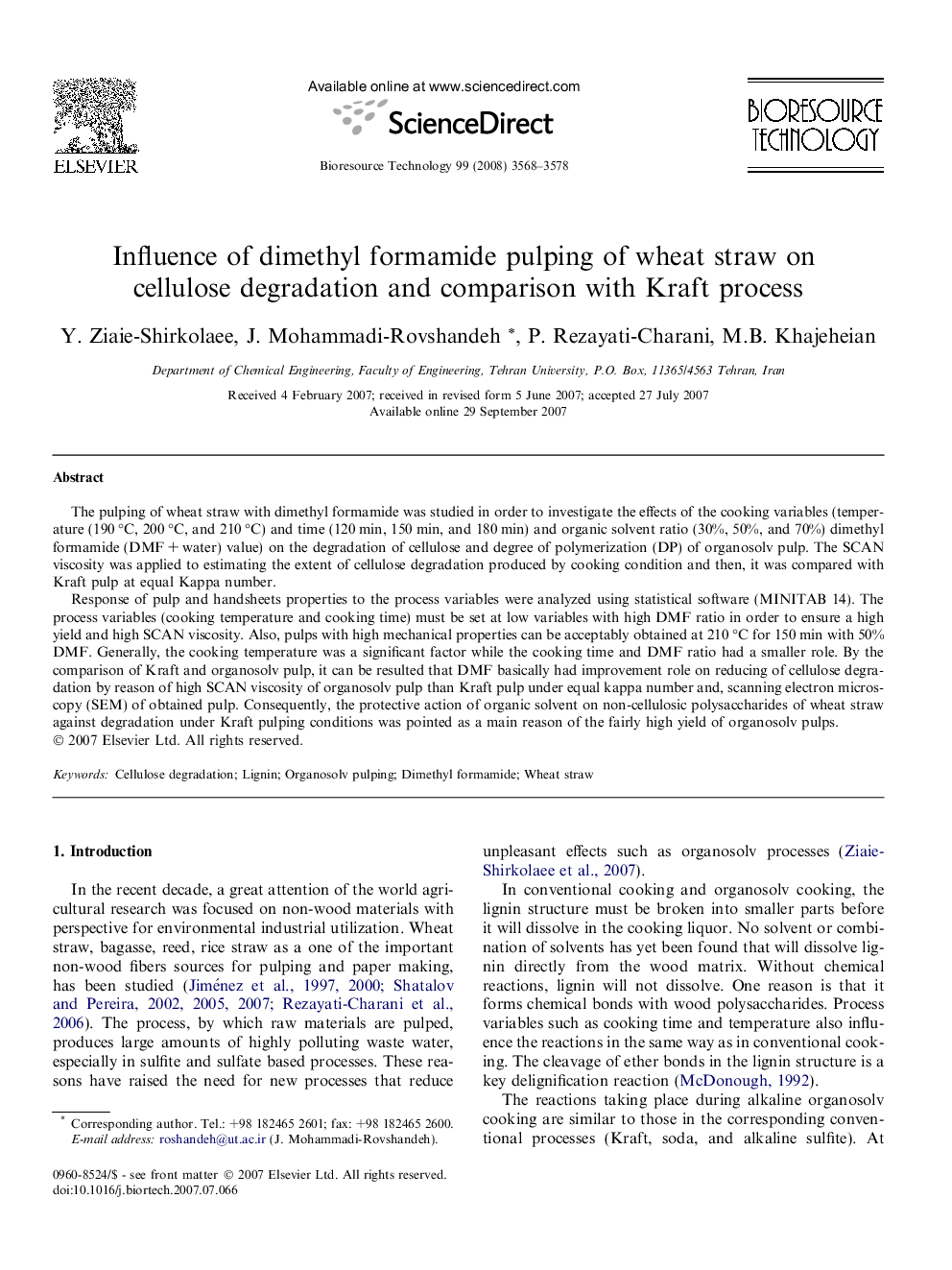| Article ID | Journal | Published Year | Pages | File Type |
|---|---|---|---|---|
| 686345 | Bioresource Technology | 2008 | 11 Pages |
The pulping of wheat straw with dimethyl formamide was studied in order to investigate the effects of the cooking variables (temperature (190 °C, 200 °C, and 210 °C) and time (120 min, 150 min, and 180 min) and organic solvent ratio (30%, 50%, and 70%) dimethyl formamide (DMF + water) value) on the degradation of cellulose and degree of polymerization (DP) of organosolv pulp. The SCAN viscosity was applied to estimating the extent of cellulose degradation produced by cooking condition and then, it was compared with Kraft pulp at equal Kappa number.Response of pulp and handsheets properties to the process variables were analyzed using statistical software (MINITAB 14). The process variables (cooking temperature and cooking time) must be set at low variables with high DMF ratio in order to ensure a high yield and high SCAN viscosity. Also, pulps with high mechanical properties can be acceptably obtained at 210 °C for 150 min with 50% DMF. Generally, the cooking temperature was a significant factor while the cooking time and DMF ratio had a smaller role. By the comparison of Kraft and organosolv pulp, it can be resulted that DMF basically had improvement role on reducing of cellulose degradation by reason of high SCAN viscosity of organosolv pulp than Kraft pulp under equal kappa number and, scanning electron microscopy (SEM) of obtained pulp. Consequently, the protective action of organic solvent on non-cellulosic polysaccharides of wheat straw against degradation under Kraft pulping conditions was pointed as a main reason of the fairly high yield of organosolv pulps.
